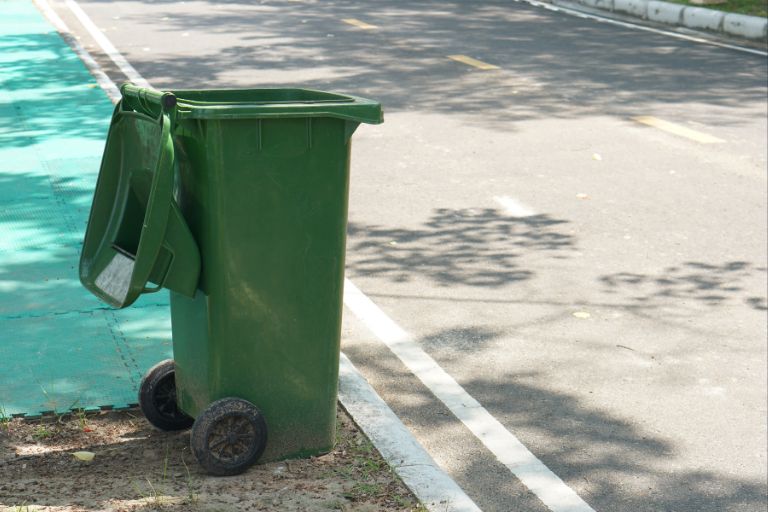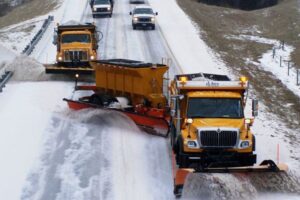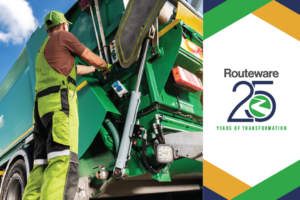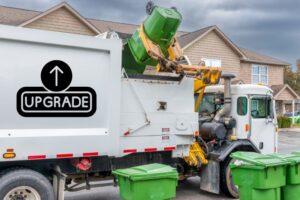Reducing food waste is a critical component in building sustainable communities. Waste haulers and smart cities play a pivotal role in this endeavor by implementing customer outreach and education programs, as well as optimizing collection routes, especially when introducing new organics services. These strategies not only help reduce food waste but also enhance operational efficiency and environmental stewardship.
Customer Education and Outreach
Educating customers on recycling best practice is essential for minimizing contamination and maximizing participation in organics recycling programs. Effective communication ensures that residents understand what materials are acceptable for processing, fostering proper sorting habits in the home and at the curb.
For instance, the City of Abbotsford in British Columbia faced challenges with recycling contamination during its transition to single-stream automated collections. To address this, the team implemented digital tools, including Routeware’s “Waste Wizard,” which provides residents with clear information on sorting household items and identifying unacceptable materials.
The city’s implementation of digital tools for waste management education significantly reduced recycling contamination, demonstrating the effectiveness of targeted customer outreach. Mayor Ross Siemens emphasized the importance of such tools in reducing contamination rates:
“By using tools like the city’s Waste Wizard and learning how to properly sort items and which items aren’t acceptable, residents can become better recyclers, which will in turn help to reduce our contamination rates and create a safer and more sustainable city.”
Route Optimization and Organics Collection
Optimizing collection routes is crucial when adding new organics programs, especially as cities seek to densify routes during the resident onboarding period. Efficient routing reduces fuel consumption, lowers greenhouse gas emissions, and ensures timely service. The Municipality of Anchorage in Alaska serves as a notable example.
By transitioning from paper-based routes to digital routing systems, the public works teamy enhanced operational efficiency and customer service with real-time communication between drivers and office staff. These technological advancements facilitated the successful launch and expansion of their organics collection program, growing from 120 customers in 2017 to 2,000 in 2021.
Benefits of Reducing Food Waste
The advantages of diverting food waste from landfills and into compost, animal feed, or anaerobic digestion, extend beyond environmental preservation. Communities that effectively manage food waste can lower waste disposal costs, reduce methane emissions from landfills, and conserve resources used in food production. Additionally, diverting edible food to donation programs can address food insecurity.
For example, Divert, Inc., an American impact technology company, collaborates with the grocery industry to eliminate wasted food and create sustainable infrastructure, aligning with the United Nations’ goal of reducing waste by 50% by 2030. Divert works with various food producers, food processors, and organics haulers around the country. And those with digital systems in place are particularly well placed to partner across the supply chain and track their organics diversion progress.
It’s not just in America that we see this trend (although it’s also certainly happening here). Across the world, efforts around organics are picking up. Global Initiatives and Challenges in Food Waste Reduction include:
Conclusion
Waste haulers have a significant role in reducing food waste through proactive customer education and strategic route optimization. These efforts not only enhance the efficiency of waste collection services but also contribute to environmental sustainability and community well-being. And for some haulers and municipalities, organics recycling offers a new and eagerly anticipated revenue source. By adopting innovative technologies and engaging with the community, waste management organizations can lead the charge toward a more sustainable future.





